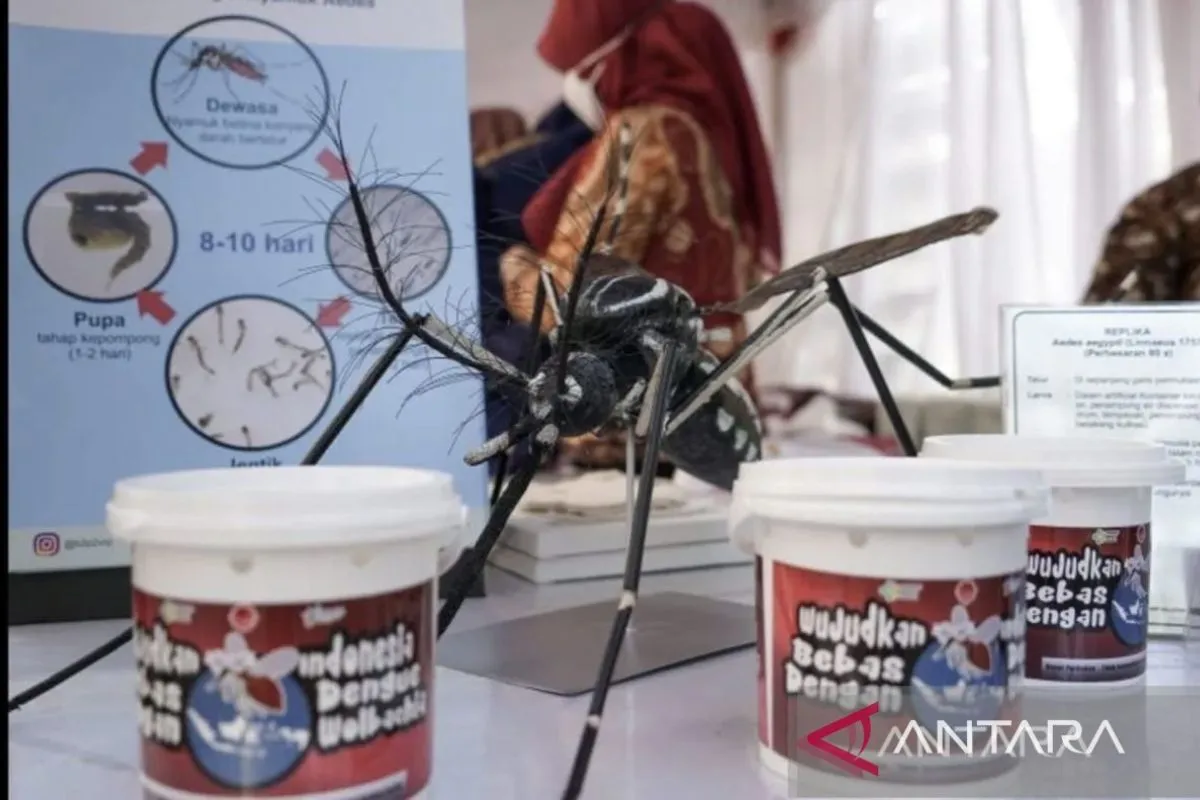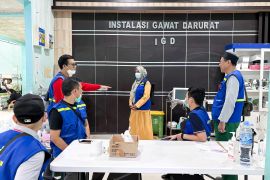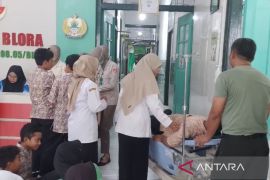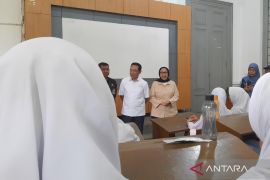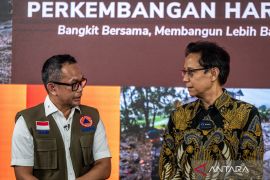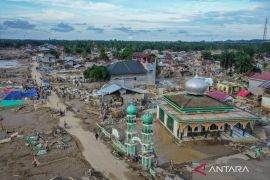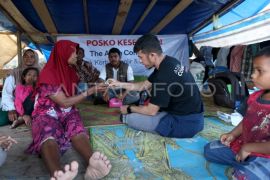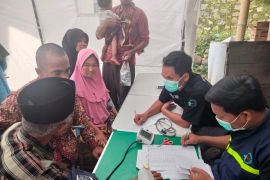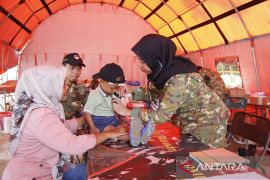"Before we decided to release such mosquitoes, we had conducted a risk study with the involvement of 25 multidisciplinary experts. The study found that some of the risks that emerged could be ignored, and the mosquitoes will not become more virulent in attacking humans," he said in a talk show on Tuesday.
Based on the results of a study conducted in 2021 by Professor Adi Utarini from Gadjah Mada University (UGM), the Wolbachia method has been proven to reduce the number of cases and the hospitalization rate of dengue hemorrhagic fever infection by both 77.1 percent and 82.6 percent.
Pambudi said the application of the Wolbachia method in Indonesia also differs from that in Singapore, which has been using this method.
"Singapore conducted sterilization, so all the mosquitoes are male. Meanwhile, in Indonesia, we do not sterilize mosquitoes. They still reproduce offspring containing Wolbachia," he explained.
However, he ensured that the government would prevent Wolbachia-infected mosquitoes from being mutated.
"The Wolbachia-infected mosquitoes always have a mechanism for survival. It is no surprise that in the next five years, for instance, they can adapt or mutate. It is a natural mechanism to defend itself, and we have to prevent it from occurring," Pambudi stated.
Regarding rejection in several areas regarding the release of Wolbachia-infected mosquitoes, Pambudi stated that his side would conduct outreach to the regional government and the figures concerned.
He remarked that the release of Wolbachia-infected mosquitoes into the environment can potentially eliminate deaths due to dengue hemorrhagic fever.
"It will not fully eliminate dengue cases, but it can eliminate death from the disease. Eliminating dengue cases and eliminating death cases are different. The more we can suppress the number of cases, the better case handling becomes," he explained.
Related news: Tackling dengue with Wolbachia method
Related news: Yogyakarta dengue cases drop with Wolbachia-infected mosquitoes
Translator: Lintang Budiyanti P, Resinta Sulistiyandari
Editor: Anton Santoso
Copyright © ANTARA 2023
